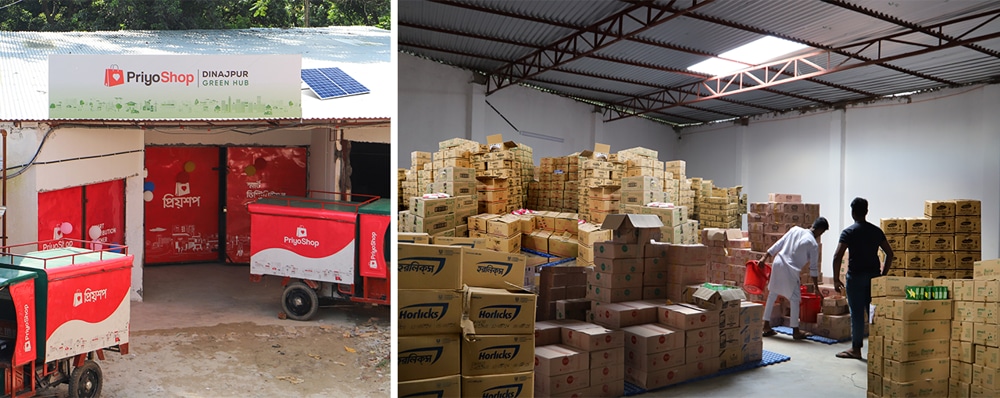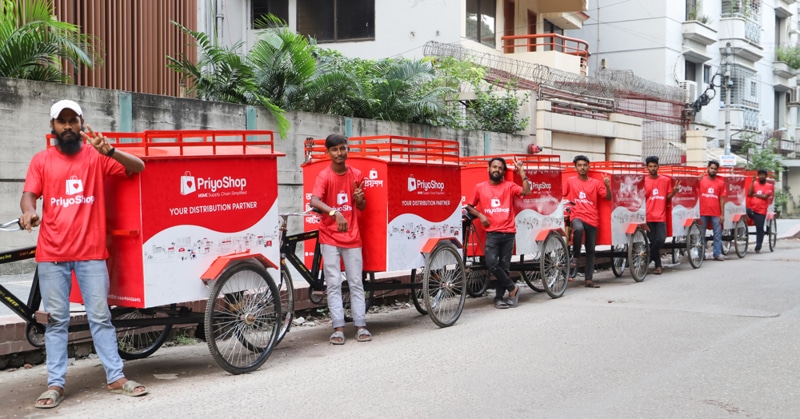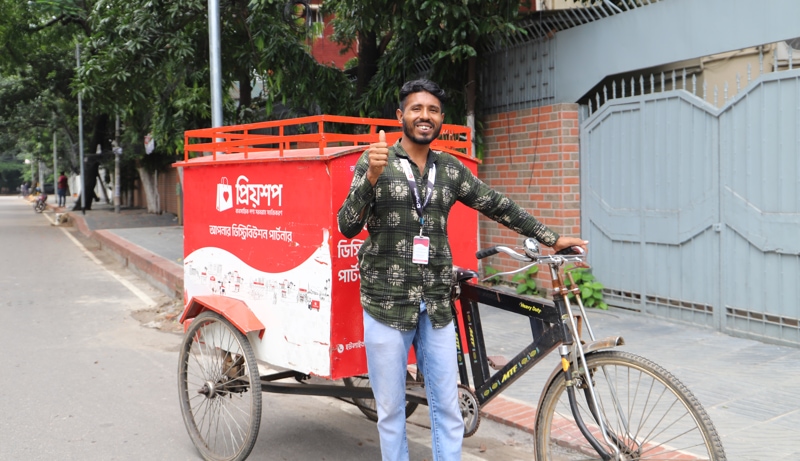
PriyoShop, the leading B2B marketplace and smart distribution platform in Bangladesh, has taken a unique approach to its business. Along with its ambition to transform the micro, small, and medium enterprises (MSMEs) landscape in Bangladesh, the company is integrating sustainability into its core operations, aiming to transform all its distribution hubs into green centers by 2026.
PriyoShop's strategy has been to empower local micro, small, and medium enterprises (MSMEs) in Bangladesh by digitizing the supply chain. The company now suggests that minimizing environmental impact can go hand in hand with this ambition. To operationalize its sustainability ambition, the company has focused on several green initiatives, aiming to reduce carbon emissions, optimize resource utilization, and foster eco-friendly business practices across its entire supply chain.
The idea for PriyoShop's sustainable approach was born out of the observation that the rapid growth of e-commerce in Bangladesh was coming at an environmental cost. As online shopping surged, so did packaging waste, carbon emissions from deliveries, and energy consumption in warehouses and data centers.
This insight led to a crucial question: How could the marketplace process be redesigned to minimize environmental impact without sacrificing efficiency or user experience? Thus, the PriyoShop team got to work to find a solution. This question is more meaningful for PriyoShop because the company works with hundreds of MSMEs. If it can scale its environmental initiatives to help these MSMEs adopt these green practices, it can become a significant corporate green practice movement in the country.
This focus on sustainability makes sense for PriyoShop on multiple fronts. It positively impacts both PriyoShop and the MSMEs it works with by improving operational efficiency, reducing costs, and enhancing brand reputation.

PriyoShop’s sustainability initiatives can be explained as a three-pronged strategy. First, systematically reducing its carbon footprint through a series of strategic interventions across its operations, such as implementing energy-efficient solutions in its distribution centers and logistics. Second, supporting local MSMEs in adopting green practices, such as encouraging MSMEs to adopt eco-friendly products and packaging. Finally, building partnerships with environmentally responsible suppliers and brands.
To operationalize this strategy, PriyoShop has launched a series of initiatives. In the following section, we take a look into some of those initiatives:
PriyoShop has invested in a comprehensive set of initiatives to limit its environmental impact. The company says contrary to the common perception, the efforts have proven cost-effective as well as beneficial for its brand reputation in the market.
Despite its promising start and apparent upsides, PriyoShop's green initiatives are not without challenges. The initial costs of transitioning to sustainable practices can be a challenge for PriyoShop and many MSMEs it works with. Moreover, entrenched business practices and a lack of environmental awareness in the market pose cultural barriers to these changes.
PriyoShop has adopted a multi-pronged approach to address these challenges. The company is investing in programs to educate MSMEs about the long-term benefits of sustainable practices. Recognizing that change doesn't happen overnight, PriyoShop is encouraging MSMEs to adopt sustainable practices incrementally, starting with low-hanging fruits. More importantly, through its initiatives across its operations, the company is looking to set an example. It is not merely asking its MSME partners to adopt sustainable practices, it is making the changes itself.
PriyoShop's approach offers lessons for other businesses in its vertical and beyond that sustainability practices shouldn’t be seen as costs. Rather, strategic implementation of sustainability practices can drive innovation and competitive advantage.

PriyoShop sustainability initiatives represent a new approach to business—one that balances growth with environmental responsibility. By promoting electric and pedal-powered delivery vehicles, PriyoShop is contributing to the reduction of urban air pollution, a critical issue in densely populated cities like Dhaka. The focus on sunlight and solar power aligns with Bangladesh's national strategy to reduce dependence on imported fossil fuels and leverage its abundant solar resources.
PriyoShop has ambitious future plans to further enhance sustainability across its operations, such as expanding the use of solar power across its hubs, promoting energy-efficient practices, and integrating more electric vehicles (EVs) and pedal-powered vans into its logistics network.
Additionally, the company aims to expand its partnerships with eco-friendly suppliers. By 2026, PriyoShop plans to make all its hubs fully green, contributing to a zero-carbon footprint while continuing to empower MSMEs with supply chain support, finance, and technology. As the world grapples with the consequences of climate change, this shift in strategy helps the company position itself as a pro-earth business.
If PriyoShop can make its sustainability initiatives work at scale, it can serve as a model for how digital platforms can adopt sustainability practices in their business.
